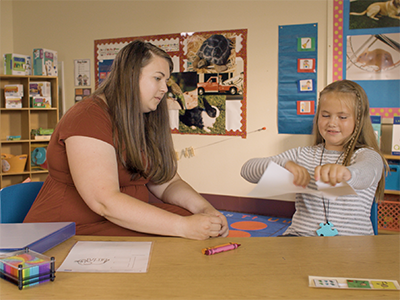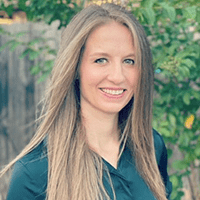Join live or receive a link to the recording and earn a CE certificate

edWebinars
«Back to all edWebinars- This event has passed.
Challenging Behavior in the Autism Classroom: What Can We Do?
Wednesday, November 16, 2022 @ 4:00 pm - 5:00 pm EST

Presented by Rachel Emmer, M.S., CCC-SLP, Teaching & Learning Ambassador, STAGES® Learning; and Frankie Kietzman, Manager of Educational Relationships, STAGES® Learning
Sponsored by STAGES® Learning
Learn more about viewing the live presentation and the recording, earning your CE certificate, and using our new accessibility features.
Even with established foundational classroom management practices in place, challenging behavior can and will still happen in classrooms supporting students with autism. When these challenges begin, teachers can curb the behaviors by analyzing their data to determine the function or cause. Once teachers have determined the “why” a behavior is occurring, then they can develop a plan to prevent it from occurring in the first place and tailor explicit instruction to reshape behaviors or reinforce replacement behaviors better suited to meeting the students’ needs. This session provides examples of proactive strategies, explicit teaching techniques and tools, and reinforcement strategies to ensure that more adaptive, appropriate behaviors begin to take place.
This recorded edWebinar is of interest to PreK-12 teachers, especially those teaching special education, and school and district leaders.

About the Presenters
Rachel Emmer is a speech-language pathologist and worked in public schools for 15 years supporting children in a variety of settings and specialized classrooms at the elementary level, at an early childhood school, and as part of a district team supporting behavior for students with special needs across the district. Rachel has a passion for working with students and staff to support communication and behavior in the classroom. Currently, she works for STAGES® Learning and provides professional development and customer care. Rachel has a bachelor’s degree from Baylor University, a Master of Science in communication disorders from The University of Texas at Dallas and has her Certificate of Clinical Competence in Speech-Language Pathology (CCC-SLP) from the American Speech-Language-Hearing Association.

Learn more about viewing the live presentation and the recording, earning your CE certificate, and using our new accessibility features.
Join the Teaching Students with Autism community to network with educators, participate in online discussions, receive invitations to upcoming edWebinars, and view recordings of previous programs to earn CE certificates.
For 25 years, STAGES® Learning has been dedicated to creating quality teaching tools to help educators provide the best learning opportunities for students on the autism spectrum. Since our first product, Language Builder: Picture Cards, was introduced in 1997, millions of children around the world have benefited from our products. Today, STAGES’ offerings include award-winning, photo-based teaching tools, manipulatives, games, puzzles, posters and sensory items, culminating in our recently launched complete curriculum for children with autism or other cognitive delays. STAGES’ online learning platform, releasing in time for fall 2022, will provide a digital option to ensure educators can support learners with autism and language delays in even more ways.



